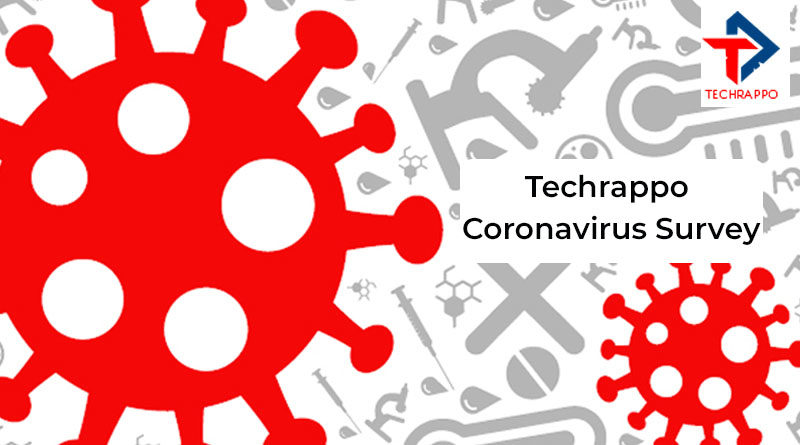Techrappo Coronavirus Survey
Techrappo conducted a survey with six focus groups consisting of people who are graduates and living in urban areas. The focus group analysis identified values and beliefs that are decisive when discussing protection against COVID-19(Coronavirus) pandemic.It contributed greatly to our understanding of public attitudes and to the crafting of relevant questions for the poll.
This report covers a wide range of public opinions on Coronavirus and its associated issues related to key findings drawn from the survey analysis and recommendations for further decision-making. Specifically, we examine:
- The importance people place on their health and the potential for building greater saliency by using masks and other protective gear.
- The importance of specific messages that make the case for protecting themselves and prevent the spread of the disease.
- The level of public support for preventing the spread of coronavirus.
- The shopping and brand preferences of customers with respect to the evolving pandemic situation.
Survey Key Findings on COVID-19 pandemic
The national survey of 900 adults across Telangana from May 10 to June 4 asked a range of questions on their attitudes toward the coronavirus.
Our analysis of the survey data identifies key points about public attitudes toward the COVID-19 pandemic that will inform how mask-use, maintaining physical distance, sanitization measures, lockdown restrictions, and shopping preferences can strengthen the commitment to the protection of population from the virus infection.
1. When do you think the coronavirus vaccine will be available?

Coronavirus is viewed as a rare and potent virus by the majority of the people. As we heard in the focus groups, the coronavirus is viewed as rare; dangerous; tricky; and potent.
To a lesser extent, it is seen as just another virus. Thus, the majority of people feel that a virus is needed for life to become entirely normal. They have different notions about when the vaccine would be available.
A large majority i.e. 85 percent are hopeful that an effective coronavirus vaccine would be available. 10 percent of them think that it will take more than a year to get the vaccine. Interestingly, the rest of the people are of the opinion that a vaccine can be made available within the next 3 months.
2. Do you think wearing a mask prevents the spreading of coronavirus?
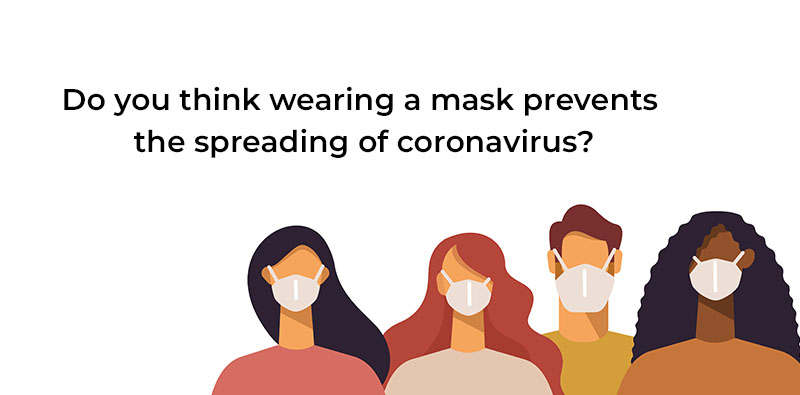
When we asked about the importance of wearing a mask in dealing with the spread of coronavirus, 70 percent feel that a mask is an essential part of daily dress code while the rest of them are not sure or unclear about the importance of masks.
3. Do you think using sanitization prevents the spreading of coronavirus?
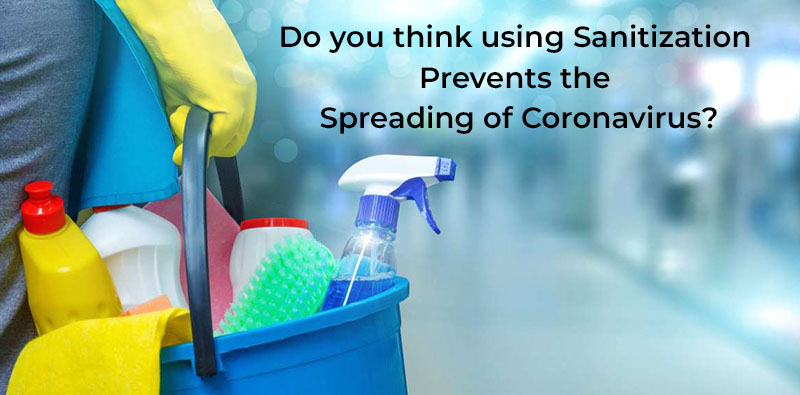
The survey results show that an overwhelming 90 percent believe in the necessity of sanitization and keeping environments clean, whereas the rest are not aware of the process of sanitization.
4. Do you think Social Distancing prevents the spreading of coronavirus?
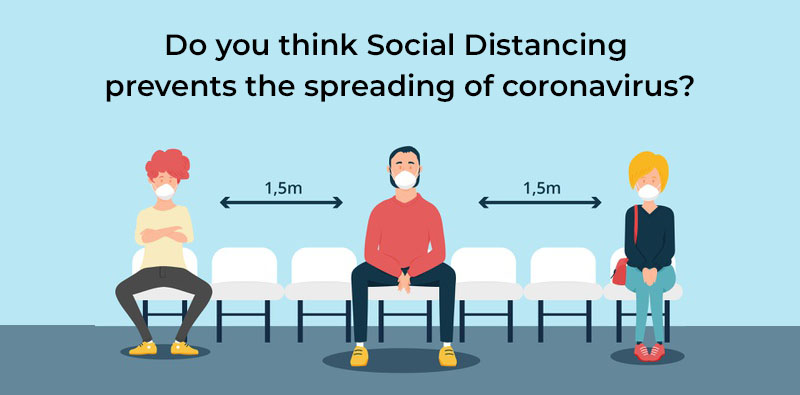
According to the survey, as much as 90 percent of the people are of the opinion that social distancing is crucial in preventing the spread of Coronavirus while the rest of them are not clear to arrive at a clear opinion of the concept of social distancing.
5. Is social distancing possible after lockdown?
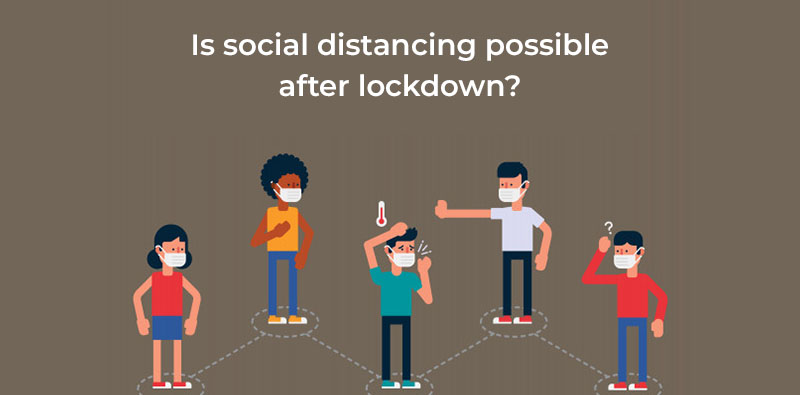
An analysis of the population indicates that the methods of social distancing are not possible after the lockdown restrictions get lifted. A major 80 percent of the surveyed people opine that it is not easy or entirely impossible to maintain social distance after lockdown. On the other hand, the rest of the population is of the opinion that cultivating self-discipline and social awareness can drive people to maintain social distance.
6. Do you think people are well educated with coronavirus prevention measures?
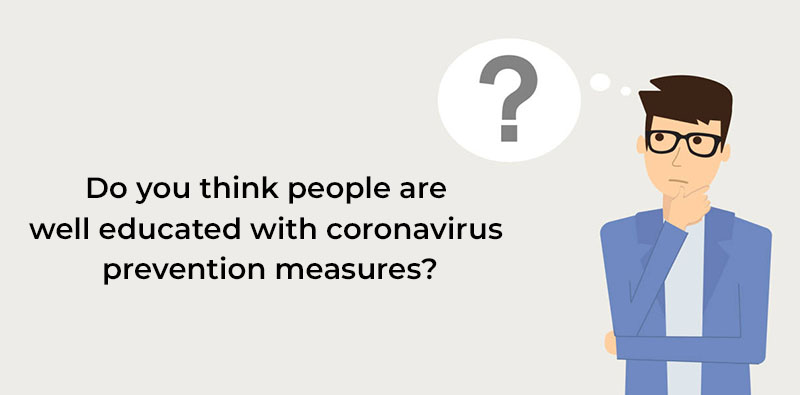
In raising awareness of the coronavirus and the health effects that follow, people feel that the masses are not equipped with the necessary knowledge to tackle the issue effectively. In the survey, we examined the strength of various value frameworks among the public in raising concerns about the causes of these rare and dangerous pandemics. They strongly believe in taking responsibility for future generations, maintaining the balance of nature, providing basic human dignity, and experiencing the beauty of nature. Only these commitments, they feel, can save humanity from future outbreaks.
7. Which stores do you prefer?
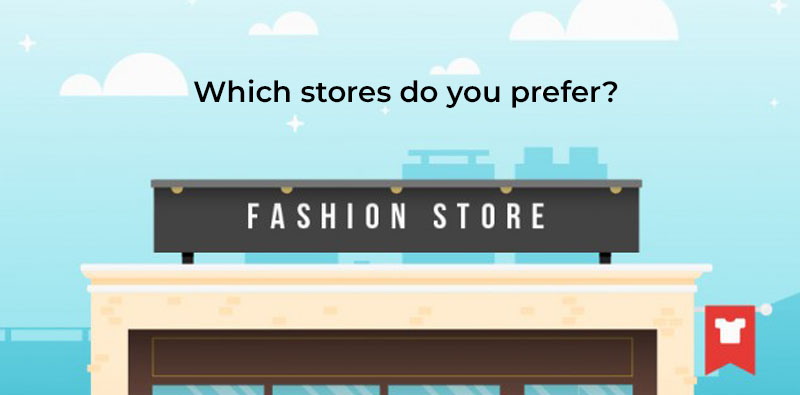
In relation to the retail and shopping experiences that they prefer, people are categorical about choosing to enter only a store that is taking all the necessary Coronavirus measures including using sanitizer, staff using PPE, and storage space being desanitised regularly.
8. Do you visit a place that has a recent history of coronavirus spread?
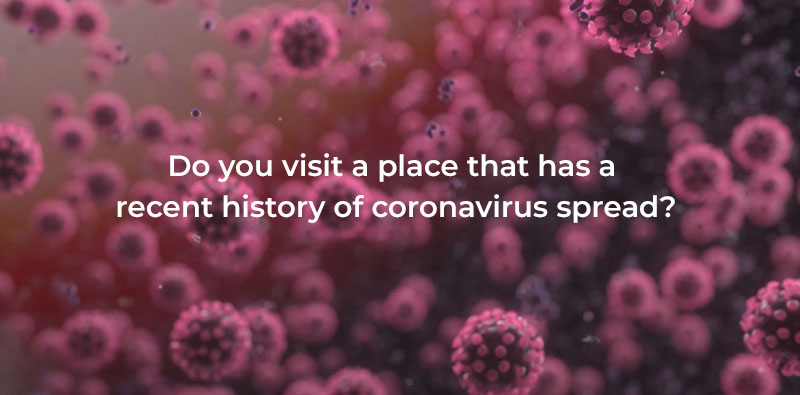
In addition to examining the values that underlie concern for the ocean, we also looked at people’s opinion on visiting a place which has a recent history of coronavirus spread. An overwhelming majority of 90 percent of the population is not likely to visit a retail store that experienced a coronavirus situation.
9. Do you visit the store which has a history of coronavirus spread in the past 30 days?
Also, when we asked the people about whether they would visit a store having a history of coronavirus spread in the past 30 days, a substantial 80 percent of them are not likely to enter that store. On the other hand, the others do want to visit the store with all the essential protective gear.
10. Do you visit the store which has a history of coronavirus spread in the past 60 days?
Whereas when we asked them about whether they would visit a store having a history of coronavirus spread in the past 60 days, a considerable 60 percent would confidently enter that store, given that store is properly sanitized.
On the contrary, 20 percent of them do not want to visit that store. Interestingly, the remaining are not able to make up their mind regarding the scenario.
11. Which brand do you prefer while shopping?
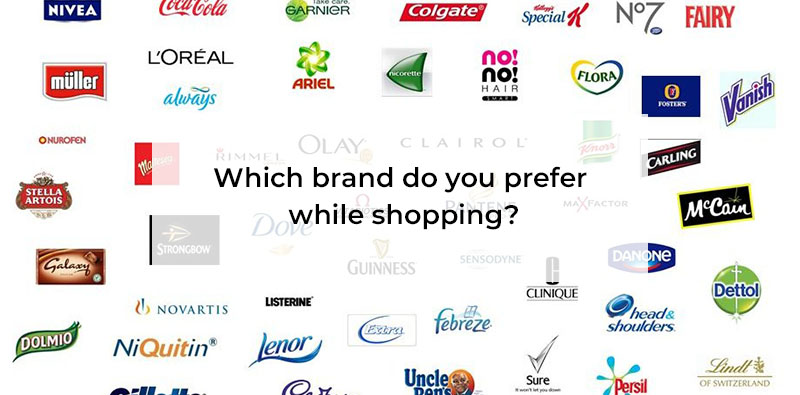
When asked the group about their brand preference while shopping in the post-lockdown market. Regarding this, a vast majority of 85 percent prefer a new brand which is taking safety measures to prevent coronavirus over a top brand that is not taking coronavirus preventive measures or any other brand which is available near them.
This article provides an overview and summary of key analytical points of the survey. As we found in this focus group research, both central and state governments, media outlets, and social media sites have a unique opportunity to educate the public about preventive measures to tackle coronavirus.
At the moment, people are generally concerned about the spread of coronavirus in India and around the world. We find that the public possesses only a very basic understanding of the coronavirus, its nature, and its interaction with humans.
However, we clearly felt a need for communicating to the public with facts, compassion, and empathy alone is likely to increase the awareness about the importance of this issue and pull humanity out of the crisis.
